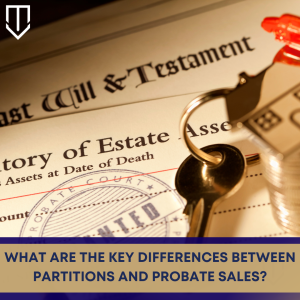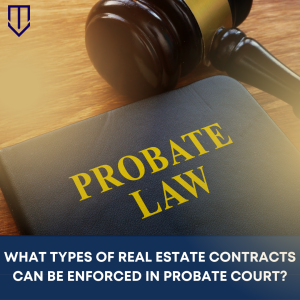 Partitions sales and probate sales are two different ways that a property can be sold. A main difference between the two is that a partition sale is ordered and overseen by the court, while a probate sale is generally overseen by a personal representative, and the court can have minimal involvement. There are also specific steps that the personal representative must take in the probate sale process under California law.
Partitions sales and probate sales are two different ways that a property can be sold. A main difference between the two is that a partition sale is ordered and overseen by the court, while a probate sale is generally overseen by a personal representative, and the court can have minimal involvement. There are also specific steps that the personal representative must take in the probate sale process under California law.
The Partitions Sale Process
Usually, partition sales are ordered by a court. This is because partition lawsuits are often brought before courts by a property owner who wants to force a sale if the parties cannot come to an agreement.
 California Partition Law Blog
California Partition Law Blog


 Real estate contracts are an expansive field of both law and life.
Real estate contracts are an expansive field of both law and life.